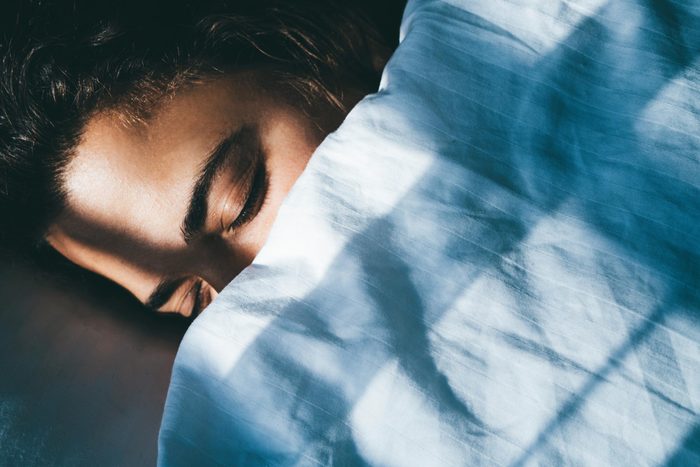
You’ve heard there are reasons you need to prioritize healthy sleep. Just to name a few, sleep can boost your brain health and make you smarter. Sleep can help you eat better and maintain a healthier weight. Going to bed earlier can result in feeling less stressed and more productive, and can even make you look better. Now, according to new research, sleep can also increase your longevity.
The research was announced in March 2023 at the American College of Cardiology‘s Annual Scientific Session together with the World Congress of Cardiology, suggesting that sleep habits play an incremental role in living longer. The researchers reported that 8% of deaths from any cause could be attributed to poor sleep problems, and that having “enough” sleep isn’t sufficient to increase your longevity, when it’s compared to having a true night of quality rest.
So what does it take to have restful sleep night after night? The Healthy @Reader’s Digest spoke with Boston-based sleep doctor Po-Chang Hsu MD, MS, at SleepingOcean, about the sleep behaviors you can adopt for a potentially longer life—and an undoubtedly happier one.
These Gentle Exercises May Be the Key To a Longer Life, Say Experts
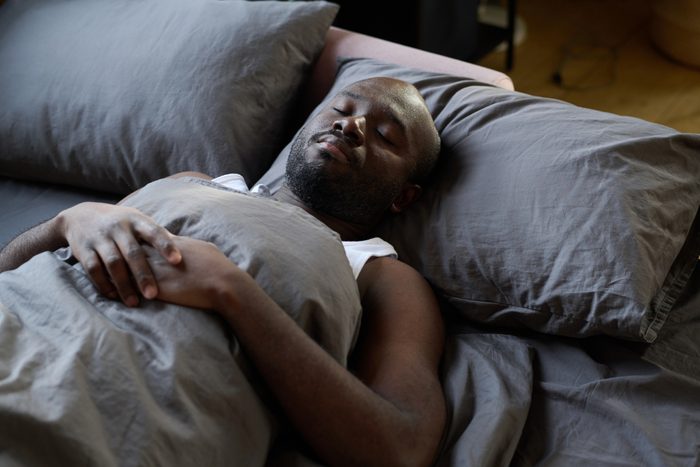
Going to bed and waking up around the same time
When the sun sets and the day comes to a close, your “internal clock” alerts your body to start winding down, boosting melatonin levels to help you naturally fall asleep—also known as the circadian rhythm. Shifts in this natural cycle can cause circadian rhythm disorder, making it harder to fall asleep and stay asleep throughout the night, which can in turn affect longevity.
“Keeping a consistent schedule can help one’s circadian clock run smoothly,” says Dr. Hsu. “This means stable sleep patterns and improved slumber quality, which leads to longevity.”
Dr. Hsu points specifically to a 2014 study in Frontiers of Aging Neuroscience, which concluded three major factors where sleep was linked with the longevity of individuals: The maintenance of slow wave sleep (the deepest phase of sleep) in older individuals, the occurrence of favorable lipid profile (more commonly known as cholesterol levels), and strict regular sleep patterns.
I Took Magnesium to Help Me Sleep for a Month—Here’s What Happened
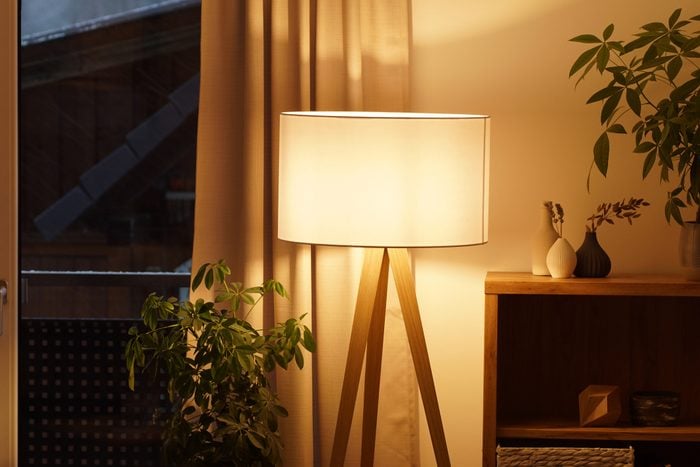
Changing the light bulbs in your bedroom
Yes, the lightbulbs in your room can play a part in your regular sleep cycle. Warmer tones tend to be best for signaling the brain to wind down, versus harsher, cooler tones.
“Ideal sleep-inducing lighting is warm—auburn, for example,” says Dr. Hsu. (To envision it, imagine the glow a candle gives off.) “It signals the brain that it’s time to wind down and prepare for slumber, helping people fall asleep more easily. That’s why I always recommend changing the light bulbs in the bedroom to warm ones. It’s also a good idea to dim the lights around the house a few hours before bed.”
The natural lighting and dimming of lights during the day mimic the lighting of the sun. The Centers for Disease Control & Prevention (CDC) says this mimicked rhythm is what the circadian rhythm takes its cues from. Light from the sun signals for your body to be awake, while dark signals for your body to get some rest.
One solution for dimming the lights is to set the lights on a timer. Smart lightbulbs or timer outlets can make it easy for creating specific settings around the home, creating a natural dimming of your lights as your body’s internal clock starts to wind down.
The Actual Reasons Lamps Are Better for Your Health Than Overhead Lights, Says an MD
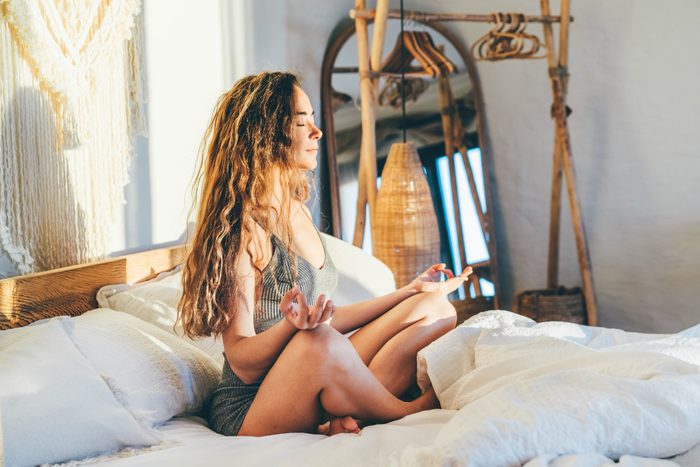
Meditating
“Meditation is often considered boring, but this relaxation technique can do wonders for one’s sleep,” Dr. Hsu says. “Meditation is believed to help people fall asleep faster and enjoy deeper, more restorative slumber. I recommend starting with guided meditation, as it’s easier to focus on.”
Many studies back up Dr. Hsu’s recommendation. A 2019 review published in the Annals of the New York Academy of Sciences analyzed a number of reliable past trials to conclude that meditation can be effective in treating some aspects of sleep disturbance. The Sleep Foundation points out the importance of sleep meditation in mind-body therapy, helping the body to relax and prepare for rest thanks to different pathways including slowed breathing, calmed stress pathways, improved mental outlook, and better managing pain.
Plus, in 2019 Psychology Today covered research on how a “quieting” of the brain can reduce neural activity to help promote health and improve lifespan potential.
Want To Stop Stress? A New Study Found This Solution Was More Powerful Than Meditation
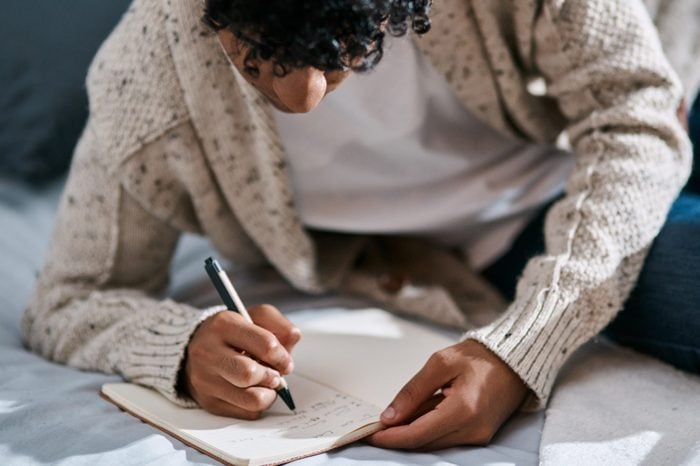
Journaling before bed
While it can be rather tempting to lay in bed and scroll on the phone, the blue light on your screen isn’t doing your circadian rhythm any favors. Instead, winding down with a great book on wellness or writing in a journal—maybe even with a cup of valerian root tea—could be beneficial, naturally winding down the brain by decreasing stress and preparing for sleep.
“I find this evening ritual very helpful regarding stress and anxious thoughts,” says Dr. Hsu. “Journaling helps take those thoughts out of the brain and put them on paper, alleviating the related anxiety. This naturally leads to improved sleep quality.”
To feel a little better every day, get The Healthy @Reader’s Digest newsletter and follow The Healthy on Facebook, Instagram, and Twitter. Keep reading:
